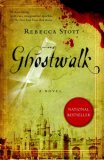Summary | Excerpt | Reading Guide | Reviews | Readalikes | Genres & Themes | Author Bio

One
Over the last two years, as I have tried to tease out the truths from the
untruths in that series of events that seeped out through Elizabeth's death,
like lava moving upwards and outwards through salt water from a tear in the
seabed, I have had to be you several times, Cameron Brown, in order to
claw myself towards some kind of coherence. Sometimes it was—is—easy to imagine
the world through your eyes, terribly possible to imagine walking through the
garden that afternoon in those moments before you found your mother's body in
the river. After all, for a long time, all that time we were lovers, it was
difficult to tell where your skin ended and mine began. That was part of the
trouble for Lydia Brooke and Cameron Brown. Lack of distance
became—imperceptibly—a violent entanglement.
So this is for you, Cameron, and yes, it is also for me, Lydia Brooke, because
perhaps, in putting all these pieces together properly, I will be able to step
out from your skin and back into mine.
Alongside Elizabeth’s body floating in red in the river, there are other places
where this story needs to start, places I can see now but wouldn't have seen
then, other beginnings which were all connected. Another death, one that took
place around midnight on the 5th of January, 1665. That night, Richard Greswold,
a fellow of Trinity College, Cambridge, had opened a door onto a dark, unlit
landing above a staircase in Trinity. A draught caught the flame from the lamp
in his hand, twisting and elongating the shadows around him. As a thin stream of
blood began to trickle from one, then both of his nostrils, he raised the back
of his hand and wiped it across his cheek, smearing the blood into streaks, and
fell forward, very slowly, into air, through the palest of moon shadows cast
through casement windows. He fell heavily, his body twisting and beating against
the steps and walls. The lamp fell too and bounced, making a metallic
counterpoint to the thuds of flesh on wood. By morning the blood from the wound
on Richard Greswold’s head had run through and across the uneven cracks of the
stone flagging on which he died, making a brown map like the waterways across
the Fens to the north, the college porter said, prying a key—the key to the
garden—from the dead man’s clenched fist. Encrusted blood, as thick as fen mud.
Greswold’s death was bound up with Elizabeth’s. She came to know that before she
died, but we didn’t. Two Cambridge deaths, separated by three centuries, but
inseparable, shadowing each other. Richard Greswold. Elizabeth Vogelsang.
Elizabeth Vogelsang drowned in September, 2002, the first of three deaths that
would become the subject of a police investigation four months later. The police
took a ragged testimony from me, which I gave in answer to the questions they
asked and which were recorded on tape in a windowless room in the basement of
the Parkside Police Station by a Detective Sergeant Cuff on the 16th of January,
2003.
“All the interview rooms are occupied this morning, Dr. Brooke,” he said,
struggling to find the right key as I followed him down grey corridors. “So
we’ll have to use the central investigation room. I’m afraid it’s not ideal, but
it is at least empty this morning. There’s a staff training morning—health and
safety. We have about an hour. This is not a formal interview, you understand.
We’ll do that later. Just a chat.”
“I don’t know whether what I have to tell you will take an hour,” I said. My
nerves were jangled. I wasn’t sleeping. I was still waking in the middle of the
night angry with you, and with me, but I had enough self–possession to know that
I would have to be careful and alert here at the Parkside Police Station. Very
alert. They had arrested Lily Ridler.
Excerpted from Ghostwalk by Rebecca Stott Copyright © 2007 by Rebecca Stott. Excerpted by permission of Spiegel & Grau, a division of Random House, Inc. All rights reserved. No part of this excerpt may be reproduced or reprinted without permission in writing from the publisher.




Believe those who are seeking the truth. Doubt those who find it.
Click Here to find out who said this, as well as discovering other famous literary quotes!
Your guide toexceptional books
BookBrowse seeks out and recommends the best in contemporary fiction and nonfiction—books that not only engage and entertain but also deepen our understanding of ourselves and the world around us.